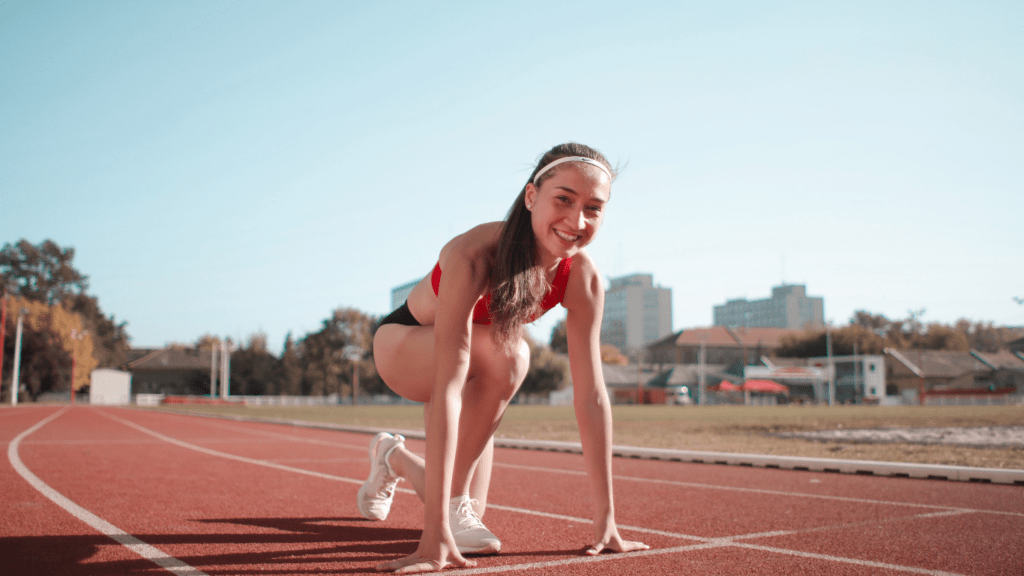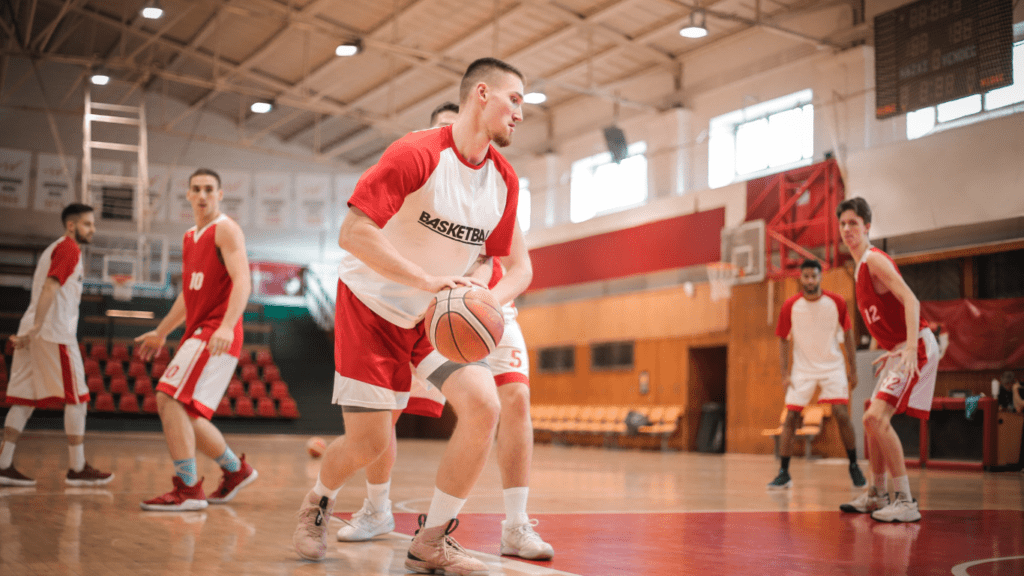Every athlete knows that success on the field or court starts with a solid foundation. Mastering the basics isn’t just a step in training; it’s the cornerstone of any athlete’s journey. Whether you’re a seasoned pro or just starting out, honing these fundamental skills can elevate your performance and set you apart from the competition.
In this article, I’ll explore the essential skills every athlete should perfect. From agility and coordination to strength and endurance, these building blocks are crucial for achieving peak performance.
Let’s dive into how focusing on these foundational elements can not only enhance your game but also foster a lifelong love for sports.
Overview of Foundational Skills
Mastering foundational skills is crucial for any athlete. These essential abilities shape overall performance and foster a deeper connection to the sport.
Importance of Mastering the Basics
Mastering the basics lays a solid foundation for all athletic endeavors. Fundamental skills enhance an athlete’s capability to perform advanced techniques. Athletes of every level benefit, as these skills promote consistency, increase confidence, and reduce the risk of injuries.
Focusing on basics cultivates discipline, commitment, and a strong work ethic.
How Basics Impact Performance
Basic skills directly influence overall performance metrics. Improved agility allows for quicker movements on the field or court. Enhanced coordination enables better control during complex maneuvers.
Increased strength supports powerful movements and prevents fatigue, while elevated endurance extends an athlete’s ability to perform under pressure. Concentrating on these elements can significantly lead to better competitive outcomes and heightened athletic enjoyment.
Key Skills for Every Athlete
Every athlete benefits from focusing on essential skills that enhance performance and enjoyment in sports. I’ll explore critical physical and mental skills that lay the groundwork for athletic success.
Physical Skills
Athletes need specific physical skills to excel. Mastering these abilities can lead to improved performance:
- Agility: Agility allows for quick, precise movements in response to changing game situations. It enhances an athlete’s ability to evade opponents or change directions rapidly.
- Coordination: Coordination links multiple body parts to perform complex movements smoothly. High coordination aids in executing skills efficiently, such as throwing, catching, or striking.
- Strength: Strength underpins nearly every athletic movement. Enhanced strength supports lifting, sprinting, and resisting fatigue. Specific strength training tailored to the sport boosts overall performance.
- Endurance: Endurance enables athletes to sustain physical activity over time. Increased endurance supports sustained efforts during prolonged events, minimizing fatigue and maximizing performance.
Mental Skills
Mental skills play a key role in athletic performance. These abilities help manage pressure and maintain focus:
- Focus: The ability to concentrate enhances performance during competition. Focus aids athletes in ignoring distractions and executing strategies.
- Confidence: Confidence boosts an athlete’s self-belief, impacting performance positively. High confidence often leads to greater risk-taking and improved results.
- Resilience: Resilience allows athletes to bounce back from setbacks or failures. This mental toughness supports athletes in maintaining motivation and determination after challenges.
- Visualization: Visualization techniques help athletes mentally rehearse their performance. This practice can enhance accuracy, improve technique, and reduce anxiety before competitions.
Mastering these physical and mental skills is essential for athletes aiming for excellence in their sport.
Developing Physical Skills
Developing physical skills forms the backbone of athletic performance. By honing fundamental abilities, I can enhance my overall capabilities and proficiency in my chosen sport.
Strength and Conditioning
Strength and conditioning serve as cornerstones of athletic training. Building strength through weight training or resistance exercises improves muscle function, power output, and injury prevention.
Olympic lifts, squat variations, and bodyweight exercises like push-ups and pull-ups significantly contribute to overall strength. Conditioning, often achieved through high-intensity interval training (HIIT) or aerobic exercises, boosts cardiovascular endurance and stamina.
Programs that combine both elements optimize athletic performance, allowing me to maintain intensity throughout competitive play. Consistent strength and conditioning routines enable me to execute explosive movements, sustain effort, and recover effectively.
Agility and Speed
Agility and speed enhance an athlete’s ability to change direction quickly, respond to opponents, and execute plays efficiently. Drills such as ladder exercises, cone drills, and short sprints improve foot speed and coordination.
Training regimens focusing on lateral movements and quick starts sharpen my ability to dodge or respond during high-pressure situations. Speed relies on techniques that promote efficient running mechanics; incorporating strides, acceleration drills, and plyometric exercises develops explosive power.
Improved agility and speed lead to better on-field performance, giving me a competitive advantage in my sport. Regular evaluation and refinement of these skills ensure continuous growth and adaptation as I progress in my athletic journey.
Cultivating Mental Skills
Mental skills play a pivotal role in enhancing athletic performance. Developing these skills not only improves focus during competitions but also builds resilience against challenges.
Focus and Concentration
Mastering focus and concentration helps me maintain performance during high-pressure situations. Techniques like mindfulness and meditation aid in sharpening my mental clarity. Practicing pre-competition routines reinforces consistency in my focus.
Setting specific, achievable goals helps direct my attention and minimize distractions. Utilization of visualization strategies allows me to mentally rehearse performances, solidifying confidence and concentration.
Resilience and Adaptability
Building resilience and adaptability equips me to manage setbacks effectively. Developing a positive mindset enhances my ability to bounce back after failures. Embracing challenges as opportunities for growth fosters mental toughness.
Adopting flexible strategies during competitions helps me adjust to changing circumstances, such as opposing tactics or unexpected performances. Engaging in regular self-reflection allows me to evaluate experiences and improve future responses to challenges.
Tips for Perfecting the Basics
Perfecting foundational skills requires dedication and a structured approach. I focus on practicality and continuous improvement to enhance performance.
Consistent Practice
Consistent practice forms the backbone of skill mastery. I engage in targeted drills several times a week, focusing on agility, coordination, strength, and endurance. Ensuring each practice session lasts 30 to 60 minutes helps establish routine and promotes muscle memory.
Varying my drills also keeps training engaging and ensures comprehensive skill development. Techniques such as repetition, interval training, and dynamic movements make practice effective. Tracking progress through measurable goals reinforces accountability and motivation.
Seeking Feedback
Seeking feedback accelerates skill refinement. I consult coaches, training partners, or even video recordings to gain insights into my performance. Constructive feedback allows me to identify strengths and weaknesses effectively.
Regularly discussing techniques with a coach leads to tailored advice for improvement. Engaging in peer review encourages open dialogue about best practices and can highlight areas of focus I may overlook. Overall, feedback serves as a critical component in my dedication to perfecting fundamental skills.




